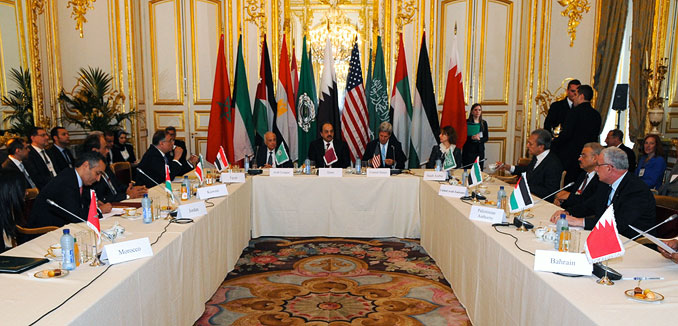As Arab leaders gather in Kuwait this week, the Palestinian delegation will seek support for their rejectionist stance on the American-brokered peace talks with Israel, hoping to convince them to reinvigorate the Arab peace initiative as an alternative to the American track.
The Israel Project’s Regional Analyst Paul Shindman believes Palestinian leader Mahmoud Abbas
is unwilling to give an absolute ‘no’ and break off the talks, which would threaten an American rebuke and future international monetary support for the PA. At the same time, the Palestinians collectively have not arrived at the point where they are able to say yes and take an independent state with the sacrifices to their long-standing absolutist narrative that this would involve.
According to reports based on American and Israeli sources, during his trip to Washington last week Abbas reiterated the Palestinian rejection of the core Israeli demands of recognition of Israel as the Jewish state, compromise on refugees and an end to the conflict. If accurate, these reports are reminiscent of then Palestinian leader Yasser Arafat’s refusal at the 2000 Camp David Summit that led to the collapse of negotiations and the launching of the Second Intifada.
A Palestinian move towards the Arab peace plan would change the basic negotiating terms and would buy the Palestinians a considerable period of time in which they would be able to avoid making any concessions or cutting a deal. The Palestinian approach to the Arab League follows reports in the Arabic media over the weekend suggesting the Arab states are considering withdrawing the initiative.
A modified version of the original Saudi-proposed plan was adopted by Arab countries at their annual gathering in Beirut in 2002. The proposal includes a call for Israeli withdrawal to the 1967 lines, solving the refugee issue based on UNGA Resolution 194, the creation of a Palestinian state with its capital in eastern Jerusalem, the Arab states signing a peace agreement with Israel, and normalizing relations with Israel.
[Photo U.S. State Department]




